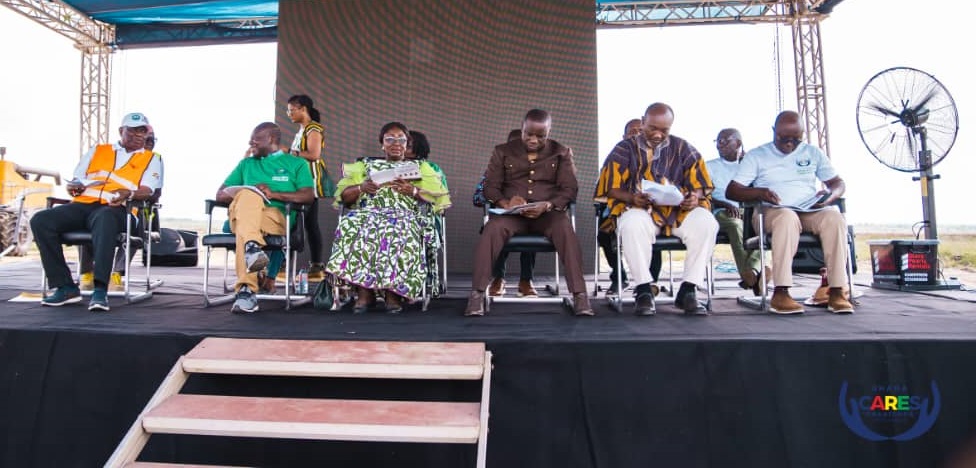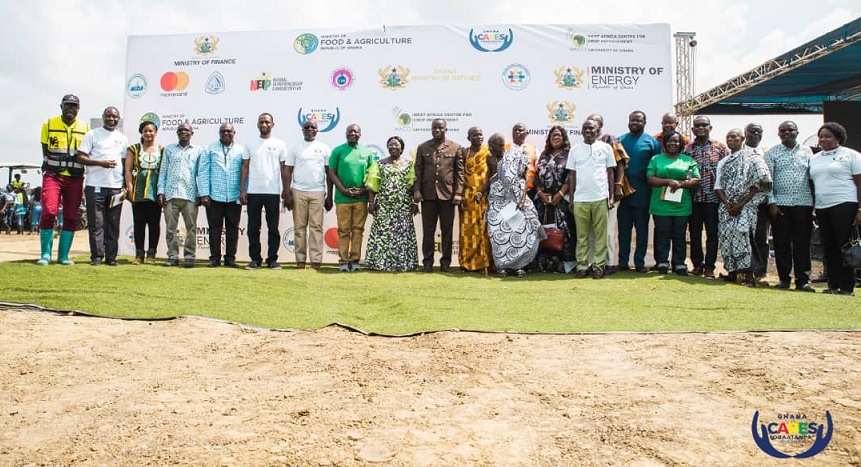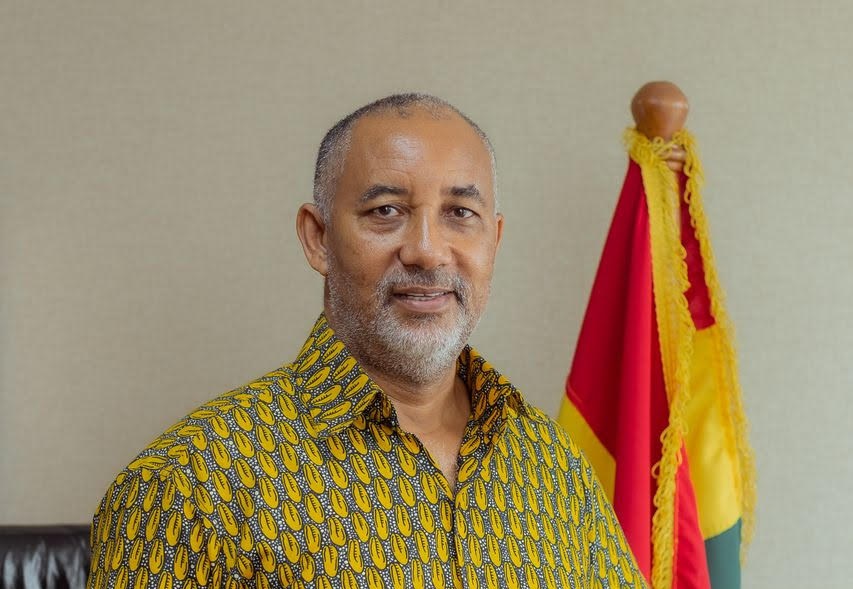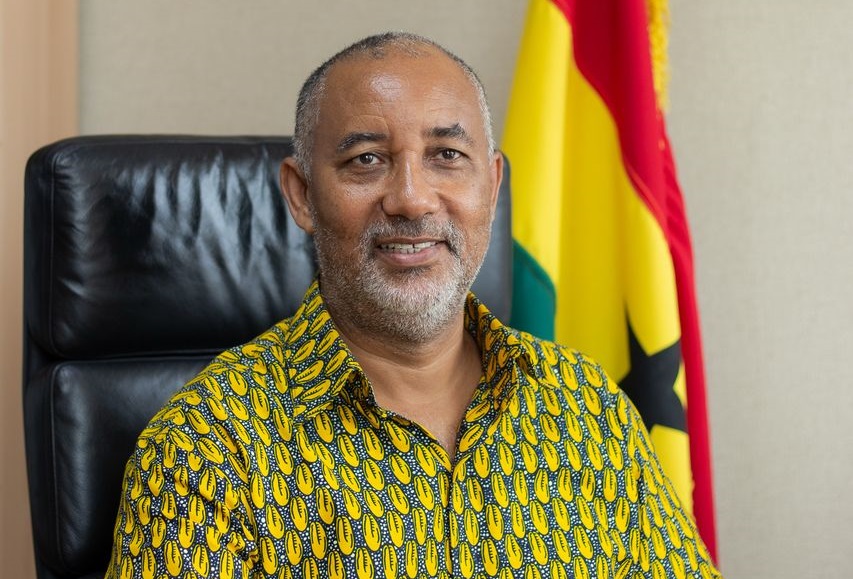The government of Ghana has successfully launched the Economic Enclaves Project (EEP), a groundbreaking initiative under the Ghana CARES programme that seeks to de-risk agriculture, create jobs and reduce food imports.
The project was launched at the 10,000-acre agricultural economic zone at Noyaa Akutso in Kasunya-Nyaphienya, Greater Accra Region.
The government has appointed the Millennium Development Authority as the lead implementation agency. MiDA will coordinate this multi-stakeholder initiative designed to create an enabling ecosystem for private sector participation in commercial agriculture. The project aims to significantly expand Ghana’s productive capacity in strategic crops while creating substantial employment opportunities for youth.
The Chief of Staff at the Office of the President, Madam Akosua Frema Osei-Opare assured MiDA of the full support of the government to ensure the success of the project.
“The government shall provide all the necessary resource to enable us work on our food security and sufficiency. We can no longer depend on others for our food when supply chains have proven unreliable,” said Chief of Staff Akosua Frema Osei-Opare.
“The Economic Enclave Project represents a strategic approach to agricultural transformation,” said Martin Eson-Benjamin, Chief Executive Officer of MiDA. “By leveraging our experience in managing complex, multi-stakeholder projects, MiDA will ensure the effective implementation of this initiative to achieve measurable impact in agricultural productivity and job creation.”
The Minister for Finance, Hon. Ken Ofori-Atta, announced that the Development Bank Ghana has approved GHC 500 million in funding support for the project, demonstrating Government’s commitment to transforming Ghana’s agricultural landscape.
“The Economic Enclave Project represents a watershed moment in Ghana’s economic transformation agenda,” stated Hon. Ofori-Atta. “Through this initiative, we are creating a catalytic framework to address structural challenges in our economy, transitioning from import-dependence to a self-sufficient, export-oriented agricultural sector.”

KEY PROJECT COMPONENTS
Private Sector Engagement:
- Commercial farming opportunities in rice, tomatoes, maize, soya, vegetables, and poultry
- Access to GHC 500 million funding support through Development Bank Ghana
Employment Generation:
- 95,000 direct and indirect jobs
- Comprehensive training program in agricultural best practices and entrepreneurship
Implementation Structure: MiDA has established a robust implementation framework incorporating:
- Project Management Unit
- Technical Advisory Committee
- Stakeholder Coordination Platform
- Monitoring and Evaluation System
PARTNER AGENCIES
MiDA is coordinating implementation through strategic partnerships with:
- Ministry of Finance
- Ministry of Food and Agriculture
- Ministry of Defence (48 Engineers Regiment)
- Ministry of Energy
- Ministry of Roads and Highways
- Ministry of Lands and Natural Resources
- Ghana Irrigation Development Authority
- National Entrepreneurship and Innovation Programme
- Ghana Incentive-based Risk-Sharing System for Agricultural Lending
- MasterCard Foundation
GEOGRAPHIC COVERAGE
Phase One implementation begins in Greater Accra, with planned expansion to:
- Ashanti Region
- Central Region
- Western North Region
- Savannah Region
- Oti Region
The project seeks to progressively develop 110,000 acre of land under irrigation
PROJECT MONITORING
MiDA has instituted comprehensive monitoring and evaluation mechanisms to track:
- Implementation progress
- Job creation metrics
- Agricultural productivity increases
- Private sector participation rates
- Economic impact indicators
STAKEHOLDER ENGAGEMENT
MiDA invites interested private sector entities, organized groups, religious institutions, traditional authorities, and financial institutions to participate in this transformative initiative.
For detailed information about participation:
- Visit: www.mida.gov.gh
- Email: procurement@mida.gov.gh
About MiDA
The Millennium Development Authority (MiDA) is responsible for implementing Ghana’s Millennium Challenge Corporation Programs. MiDA has successfully managed complex development projects worth over $1 billion, focusing on infrastructure development, agricultural transformation, and economic growth.



